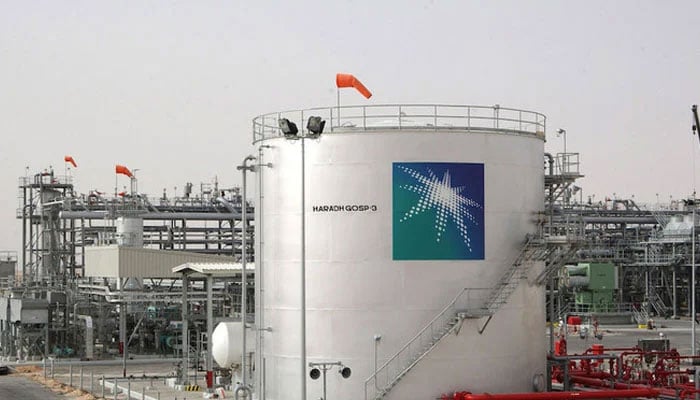Navigating success: The quest for Pakistan’s ‘Guarantor of Stability’
Saudi Aramco, which oversees the world's largest single hydrocarbon network, has acquired a 40 percent stake in Gas and Oil Pakistan Ltd. through a $100 million investment. When Aramco invests, the world takes a note.
Etisalat, the Emirati multinational telecommunications services provider, the 18th largest mobile network operator in the world, is investing $400 million to acquire 100 percent of Telenor Pakistan (Pvt.) Limited.
Shanghai Electric Group Company Limited, a multinational corporation specializing in power generation and electrical equipment manufacturing, has achieved a successful financial closing of $2 billion for Pakistan's largest Thar coal-fired power project, boasting a capacity of 1,320 MW. This initiative is projected to generate electricity at an affordable rate of Rs5 per unit, resulting in annual savings of approximately $500 million.
Wafi Energy Company, a Saudi company specialized in managing and operating fuel stations, has, through a Share Purchase Agreement, bought a majority stake in Shell Pakistan Limited. Shell Pakistan has 782 petrol pumps, 10 fuel terminals and a lubricant oil blending plant. Wafi Energy Company has now ventured into Pakistan.
The State Bank of Pakistan (SBP) has announced Pakistan's current account surplus for November 2023. What does this signify? It implies four key factors: economic stability, heightened investor confidence, currency stability, and a diminished reliance on external financing.
In October, the Pakistan stock market distinguished itself as one of the top-performing markets worldwide in terms of dollars, with listed companies announcing profits totaling Rs420 billion. During the July-October quarter, the Federal Board of Revenue (FBR) surpassed the revenue target for the fourth consecutive month, achieving a collection of Rs2.75 trillion. Additionally, by December, Pakistan's cotton production reached a peak of 8 million bales, marking a remarkable 74 percent increase compared to the previous year.
Pakistan requires a 'guarantor of stability'—an entity capable of ensuring continuity in economic policies. My profound concern lies in the potential unsettling impact on investors due to sudden shifts or uncertainties arising from elections. A 'guarantor of stability' serves as a pillar of predictability, cultivating confidence among both domestic and foreign investors. This confidence plays a pivotal role in fostering the necessary conditions for sustained economic growth.
Elections inevitably introduce campaign promises and the possibility of policy shifts. A 'guarantor of stability' ensures that the emphasis stays on executing carefully devised plans, fostering more effective and sustainable economic development. A newly elected government may be susceptible to making rushed fiscal decisions that could potentially result in economic imbalances. With a 'guarantor of stability' in place, there is a commitment to enforcing fiscal discipline and maintaining prudent budgetary management.
Just when Saudi Aramco, Etisalat, and Shanghai Electric are making power moves in Pakistan. Just when the drumbeat of success is echoing from stock markets to energy projects. It is clear Pakistan’s economic prowess commands attention-and continuity. Right now, Pakistan needs not just leaders but a 'guarantor of stability.'
-
 Everything We Know About Jessie J's Breast Cancer Journey
Everything We Know About Jessie J's Breast Cancer Journey -
 Winter Olympics 2026: What To Watch In Men’s Hockey Today
Winter Olympics 2026: What To Watch In Men’s Hockey Today -
 Winnie Harlow Breaks Vitiligo Stereotypes: 'I'm Not A Sufferer'
Winnie Harlow Breaks Vitiligo Stereotypes: 'I'm Not A Sufferer' -
 Apple Martin Opens Up About Getting 'crazy' Lip Filler
Apple Martin Opens Up About Getting 'crazy' Lip Filler -
 Why Did OpenAI Remove One Crucial Word From Its Mission Statement?
Why Did OpenAI Remove One Crucial Word From Its Mission Statement? -
 Prince William Warned His Future Reign Will Be Affected By Andrew Scandal
Prince William Warned His Future Reign Will Be Affected By Andrew Scandal -
 Amy Madigan Reflects On Husband Ed Harris' Support After Oscar Nomination
Amy Madigan Reflects On Husband Ed Harris' Support After Oscar Nomination -
 Is Studying Medicine Useless? Elon Musk’s Claim That AI Will Outperform Surgeons Sparks Debate
Is Studying Medicine Useless? Elon Musk’s Claim That AI Will Outperform Surgeons Sparks Debate -
 Margot Robbie Gushes Over 'Wuthering Heights' Director: 'I'd Follow Her Anywhere'
Margot Robbie Gushes Over 'Wuthering Heights' Director: 'I'd Follow Her Anywhere' -
 'The Muppet Show' Star Miss Piggy Gives Fans THIS Advice
'The Muppet Show' Star Miss Piggy Gives Fans THIS Advice -
 Sarah Ferguson Concerned For Princess Eugenie, Beatrice Amid Epstein Scandal
Sarah Ferguson Concerned For Princess Eugenie, Beatrice Amid Epstein Scandal -
 Uber Enters Seven New European Markets In Major Food-delivery Expansion
Uber Enters Seven New European Markets In Major Food-delivery Expansion -
 Hollywood Fights Back Against Super-realistic AI Video Tool
Hollywood Fights Back Against Super-realistic AI Video Tool -
 Meghan Markle's Father Shares Fresh Health Update
Meghan Markle's Father Shares Fresh Health Update -
 Pentagon Threatens To Cut Ties With Anthropic Over AI Safeguards Dispute
Pentagon Threatens To Cut Ties With Anthropic Over AI Safeguards Dispute -
 Samsung Galaxy Unpacked 2026: What To Expect On February 25
Samsung Galaxy Unpacked 2026: What To Expect On February 25




